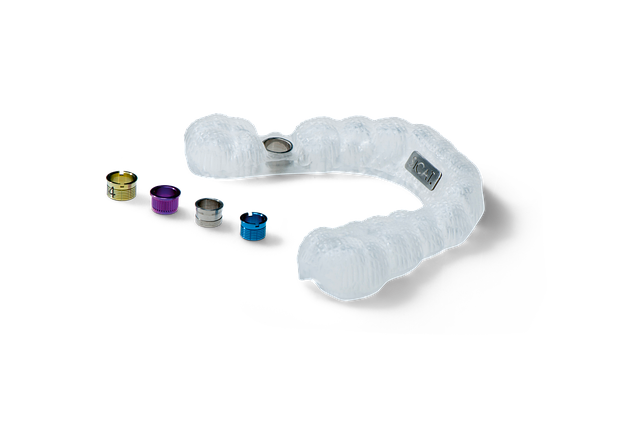The NYS electronic recycling law regulates e-waste disposal in New York State, including Boston, where recycling is mandatory. This law ensures safe data destruction and promotes sustainable e-waste management for businesses and residents. Non-compliance can result in severe penalties. Regular events, employee education, and adherence to state standards are key to responsible e-waste handling under this robust program.
In the fast-paced digital landscape, navigating data destruction compliance is paramount for businesses in NYC. This article guides you through the intricate web of regulations, focusing on the NYS Electronic Recycling Law—a comprehensive framework designed to protect sensitive information. We explore best practices for efficient waste management, delve into legal implications of non-compliance, and offer strategies for secure data disposal. Ensure your business stays ahead by understanding these critical aspects in the context of NYC’s stringent environmental and data protection standards, aligning with the NYS electronic recycling law.
- NYS Electronic Recycling Law: A Comprehensive Overview
- Understanding Data Destruction Compliance in NYC
- Best Practices for Business Waste Management
- Legal Implications of Non-Compliance in New York
- Efficient Strategies for Secure Data Disposal
NYS Electronic Recycling Law: A Comprehensive Overview

In New York State, the NYS Electronic Recycling Law sets strict guidelines for the proper disposal and recycling of electronic waste, or e-waste. This comprehensive law aims to minimize environmental impacts and promote responsible management of hazardous materials found in electronics. For Boston residents, this means that recycling old electronics according to state law is not just recommended but mandatory. The law requires that all electronic devices, from computers and phones to small appliances, be handled through State-mandated e-waste collection points, ensuring these items are processed safely and in line with NYS electronic waste disposal regulations. By adhering to these standards, Boston follows the lead of NYC and other major cities in the state, fostering a more sustainable and eco-conscious approach to e-waste management.
Understanding Data Destruction Compliance in NYC

In New York City (NYC), data destruction compliance is a critical aspect of maintaining privacy and security for businesses and individuals alike. The state’s regulations, guided by the NYS electronic recycling law, ensure that sensitive information from electronic devices is handled with care and according to strict standards. This includes proper disposal or recycling of devices like computers, servers, and mobile phones. NYC businesses must be mindful of not just federal laws but also local regulations, such as those governing e-waste in Boston, which have recently been updated.
Understanding the legal requirements for data destruction is essential for any organization dealing with outdated electronics. The Boston e-waste recycling laws, aligned with NYS guidelines, mandate specific procedures to safeguard personal and confidential data. Compliance involves secure erasure or physical destruction of hardware components, ensuring that no trace of deleted data remains. By adhering to these regulations, businesses can protect themselves from potential legal issues and maintain the trust of their customers, demonstrating a commitment to responsible e-waste management in both NYC and Boston.
Best Practices for Business Waste Management

Business waste management plays a crucial role in ensuring compliance with the NYS electronic recycling law, especially in bustling urban centers like Boston. To stay ahead and maintain sustainability, businesses should adopt best practices that go beyond mere disposal. One effective strategy is to prioritize recycling by organizing regular e-waste recycling events, aligning with the state’s directives. These events not only promote responsible management of hazardous electronics but also foster a culture of environmental stewardship among employees.
Additionally, companies can ensure proper disposal by identifying and utilizing State-mandated e-waste collection points in Boston, adhering to the NYS standards for safe and efficient recycling. By integrating these practices into their waste management strategies, businesses contribute significantly to the state’s efforts to curb electronic waste, a significant environmental challenge in today’s digital era.
Legal Implications of Non-Compliance in New York

Non-compliance with data destruction and e-waste management laws in New York City (NYC) can have significant legal implications, as the state has stringent regulations to protect its residents’ privacy and the environment. The NYS electronic recycling law, also known as the Boston law due to its wide-reaching impact, mandates that businesses and organizations safely dispose of electronic devices through approved recycling programs. Failure to adhere to these guidelines can result in substantial fines, with penalties reaching up to $5,000 per violation, or even criminal charges for individuals and companies found guilty of data destruction negligence.
E-recycling events organized by NYC and Boston cities highlight the differences and similarities in their compliance regulations. While both cities strive to promote safe disposal of electronics according to the NYS-compliant recycling program, Boston residents may have more specific rights regarding electronic recycling per NYS law. These events serve as educational platforms, emphasizing the importance of proper data destruction methods to prevent identity theft and ensure environmental safety.
Efficient Strategies for Secure Data Disposal

Staying compliant with data destruction regulations is paramount for businesses in New York City, especially when it comes to secure disposal of electronic waste. The state’s robust e-waste management program, under the NYS electronic recycling law, sets strict standards for proper disposal and recycling of electronic devices. Understanding these regulations, such as those governing Boston e-waste recycling laws updated recently, is crucial for any organization aiming to responsibly handle its end-of-life tech.
Implementing efficient strategies for secure data disposal involves a combination of hardware destruction and responsible recycling. Organizations can partner with certified electronics recyclers who adhere to both local NYC regulations and the broader NYS electronic waste disposal regulations. By ensuring that old tech is recycled in accordance with these laws, businesses contribute to environmental preservation while maintaining compliance. This approach, Recycling old tech: Ensuring compliance with Boston and NYS laws, not only mitigates legal risks but also fosters a sustainable future.
In conclusion, navigating data destruction compliance in NYC, guided by the NYS Electronic Recycling Law, is paramount for businesses aiming to protect sensitive information and avoid legal repercussions. By adopting best practices in waste management and implementing efficient strategies for secure data disposal, organizations can ensure their operations adhere to stringent regulations. Staying informed about legal implications and prioritizing responsible e-waste management are key steps towards fostering a sustainable and compliant future in the bustling NYC landscape.














